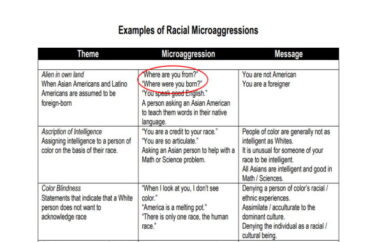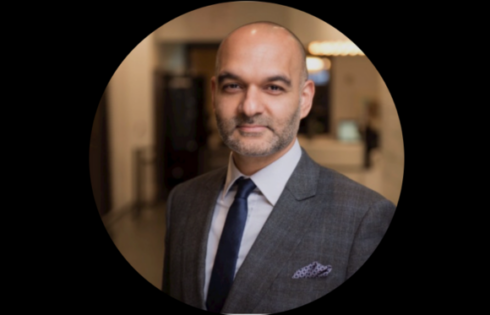
ASU’s spring semester offers 100 courses that include DEI: report
A mandatory journalism course at Arizona State University has come under fire for its curriculum, which includes teaching students that asking questions such as “where are you from” are racial microaggressions.
The journalism prerequisite course, “Diversity and Civility at Cronkite,” taught within the Cronkite School of Journalism, places a strong emphasis on the “importance of diversity, inclusion, equity and civility,” its online description reads.
The course includes a section focused on microaggressions, and students are asked to review a list of “typical microaggressions.” On that list, questions such as “Where are you from?” and “Where were you born?” are listed as “racial microaggressions.”
Timothy Minella, senior constitutionalism fellow at the Goldwater Institute, said the “course goes through a number of very questionable concepts, and prominent among them, for example, are defining certain microaggressions.”
“What’s concerning,” he told The College Fix in an interview, “is that what they are defining as microaggressions include statements such as ‘I think the most qualified person should get the job.’”
The Goldwater Institute in mid-March published a report detailing the course’s lesson plans and curriculum based on public records requests and published course syllabi.
In a statement to The Fix, ASU said Goldwater’s critique does not take into account the intentions behind the course, which is beneficial to students because it teaches aspiring journalists about the social and cultural nuances and complexities in American society.
The Diversity and Civility course is “intended to bring thoughtful, open-minded discourse to issues of race, gender, sexual orientation, ability, income, geography and other aspects of personal identities,” an ASU spokesperson told The College Fix. “The goal of the course is to help students appreciate people’s differences and to channel disagreements toward civil discussion.”
In fall 2023, more than 400 students took the required course, taught by four professors and faculty associates, the institute reported.
The course’s different sub-topics and assignments include discussions on race and ethnicity, gender and sexual identity, and geography and income, among other issues.
Readings include titles such as: “Examples of Heterosexual Privileges,” “Examples of Male Privileges” and “Examples of Cisgender Privileges.”
The students are taught that “spaces reserved for women, such as single-sex locker rooms and bathrooms—and even women’s prisons—should be open to biological men who identify as women,” the report reads.
Minella said “this is a whole course of concepts that you find in progressive, activist circles, and it’s a mandatory course for journalism students.”
“What I find problematic is the assumption built into the course that we need to teach people to be nice to each other, using academic courses, when we could be developing students’ skills in research, reporting, and writing,” he said.
“By defining all of these very benign statements as microaggressions—as offensive, problematic, and unwelcoming—universities may be trying to control a lot of the conversations that are happening among students and faculty in a very narrow way,” Minella said.
But ASU told The Fix that after taking the course, “students should be better able to approach reporting and communications projects with a multicultural perspective and inspire mutual respect among students from various backgrounds and beliefs while at the university, and beyond.”
Moreover, ASU’s statement noted: “Students may opt out of specific discussions by letting the instructor know through private email.”
The course is among more than 100 courses that either include terms such as “diversity,” “equity” and “inclusion” or fulfill the school’s mandatory DEI graduation requirement, the Goldwater Institute investigation found.
This includes courses such as “Inequality and Diversity in Education” and “Diversity and Design.” Others are dedicated to exploring the history of identity politics, according to online descriptions and documents obtained by the institute through public records requests.
“Academic freedom is a core pillar of American higher education. Unfortunately, too many institutions are aggressively pressuring faculty to infuse politicized concepts into their instruction while forcing students who simply wish to complete their studies in core fields to enroll in politically divisive programming of minimal academic rigor,” argued the report, published March 18.
The group called on Arizona lawmakers to enact legislation to curb such curricula.
But these courses reflect the university’s commitment to what it calls “inclusive excellence,” which requires staff and faculty “reflect a workforce of diverse identities” so students may learn from the broadest perspectives possible.
Cultural diversity in the United States is one of three “awareness areas” which the university states that it integrates into its core curriculum, alongside global and historical awareness.
MORE: Conservative professor sues ASU over its mandatory DEI training
Like The College Fix on Facebook / Follow us on Twitter






Please join the conversation about our stories on Facebook, Twitter, Instagram, Reddit, MeWe, Rumble, Gab, Minds and Gettr.